Review of Voyage Of The Damned
Introduction
In 1939 the passenger liner St. Louis set sail from Hamburg to Havana, Cuba with 937 passengers. Not just any passengers, Jewish passengers. For this was the period of German history just prior to the outbreak of war when public anti-Semitism was at its peak. Once war broke out it was hidden away in concentration camps, but still…
The passengers were a mix of people, some rich and some poor. Some, like companions Pozner (Paul Koslo) and Manasse (Jonathon Pryce) had even been released from a concentration camp with the warning to leave Germany in 14 days. All sold everything they had to the country they were desperate to leave.
Initially some of the passengers are hostile to the crew and the journey itself, most notably Carl Rosen (Sam Wanamaker) who sinks deeper and deeper into a depression the longer the voyage goes on. Trying to hold their heads high and make the most of this opportunity to start a new life are Dr. Egon Kreisler (Oscar Werner) and his glamorous wife Denise (Faye Dunaway). Captain Schroeder (Max Von Sydow) attempts to make the ship as comfortable for his passengers as possible, but he is being worked against by steward and Nazi party official Otto Schiendick (Helmut Griem).
Despite some setbacks by the vile Schiendick (replacing a film in the cinema with newsreels of Adolf Hitler), the passengers slowly feel more comfortable and their spirits rise. There is a celebratory feel as the coast of Cuba appears on the horizon, but all is not well.
The plan by the Nazi`s was never to let these passengers leave, rather present them as a problem for the various world Governments. Cuba refuses to let the passengers disembark from the ship and the US Government also refuses to intervene. This is as the Nazi`s foresaw and allows them to believe that the world has effectively turned its back on the Jews and therefore puts them in no position to complain when the Nazi`s finally draw their plans to rid their country of this group of people.
Trapped on the ship, the passengers get ever more desperate, knowing that their fate is to return to Hamburg. Captain Schroeder is threatened if he doesn`t cooperate but feels a loyalty to his passengers as an Officer in the German Navy. Along with his loyal Officers he has a plan…
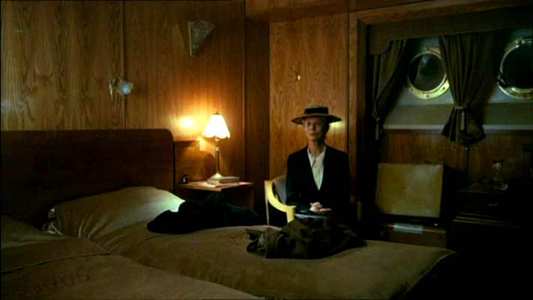
Video
Fullscreen cropped picture with little artefact damage that I could make out. The film has the opulence you would expect for a 70`s drama production, and Faye Dunaway in a monocle, split dress and thigh-length boots is a sight to behold.

Audio
Dolby Stereo 2.0 soundtrack that is more than adequate for a film of this age, no subtitles though which is a crime. The moving score by Lalo Schiff was nominated for an Oscar.
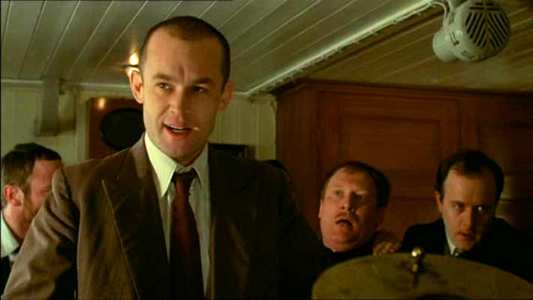
Features
Image Gallery
This release could really have done with a documentary on the real-life events, but then this film is around two and half hours long so space is at a premium.

Conclusion
There are dark moments in World history where Governments have been asked to step up to the plate and take a humanitarian responsibility, but failed. This film documents one of those times in a true story that doesn`t seem to be that well known. The world at the time simply saw these people as refugees, conveniently ignoring the fact that Germany was in the grip of anti-Semitism. This was a blatant propaganda coup for Josef Goebbels, the Cuban and US Governments in particular falling right into his lap. The Nazi`s put their Jewish `problem` out in the open for the world to see, and the world just ignored it. Little wonder they felt they could do whatever they pleased after this, with only European Governments willing to do the right thing eventually and then many were invaded within the next year or so anyway.
There is a train of thought that all-star cast films are all about the stars and not about the story, but this is a worthwhile story that probably needed the stars to ensure that it both got made and garnered the attention it deserved. At two and a half hours long, the main characters get more than enough screen time and no-one really hogs the screen more than they should. Only Dunaway and Lee Grant stand out as truly exceptional characters, the others are all good but blend in more. Werner is the Professor whose confidence is lacking at the start of the film but manages to subvert a mutiny attempt when his resolve comes back after a good telling off by wife Dunaway. Von Sydow is the Captain who does his best to make the voyage for his passengers as comfortable as possible and shocked when he discovers that his humanitarian mission is a sham. Schroeder was actually prosecuted for war crimes on the back of this voyage, only surviving passenger testimony saving him.
One of the things you really get to understand more during this film is both how truly frightened and untrusting these people were of their own countrymen, which is understandable when you see the menacing performance of Griem as the party man bully, a lesser member of the crew with an authority he neither deserves or is capable of. I have to admit that I`ve never really understood this concept of party loyalty and having people spy on others, outrank them purely because they have the right membership card. In some respects the Nazi`s and the Russian Communists were very much alike, subverting normal authority in distorted party interests and random killing. You see this quite clearly below decks when a young engineer speaks out against the party and is brutally beaten by Schiendick`s thugs from amongst the crew and then thrown overboard to his death.
The only detraction from the film really are the scenes of muted diplomacy in Cuba. These are tedious and confusing in the main, despite the inclusion of Orson Welles and James Mason, and don`t really add to the story. The politics of Cuba are never really explained and thus we never seem to get to the bottom of whether the Cubans are really in league with the Germans or are just so corrupt that nothing gets done without large sums of money. The film would have been better if this had all been cut out.
The frightening statistic to take from this film is that of the 937 passengers that started this journey, over two thirds then died in concentration camps. That wouldn`t have happened if the two Governments at the centre of this film had gone against the Nazi expectation, leaving a dark shadow on democracy with their inaction. We still see the same thing happening today, genocide is nothing new and nothing that we have consigned to the past. Seems we don`t really learn our lessons that well.






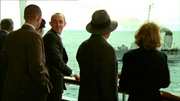
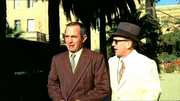

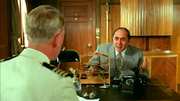





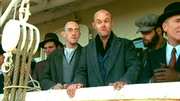


































Your Opinions and Comments
Be the first to post a comment!